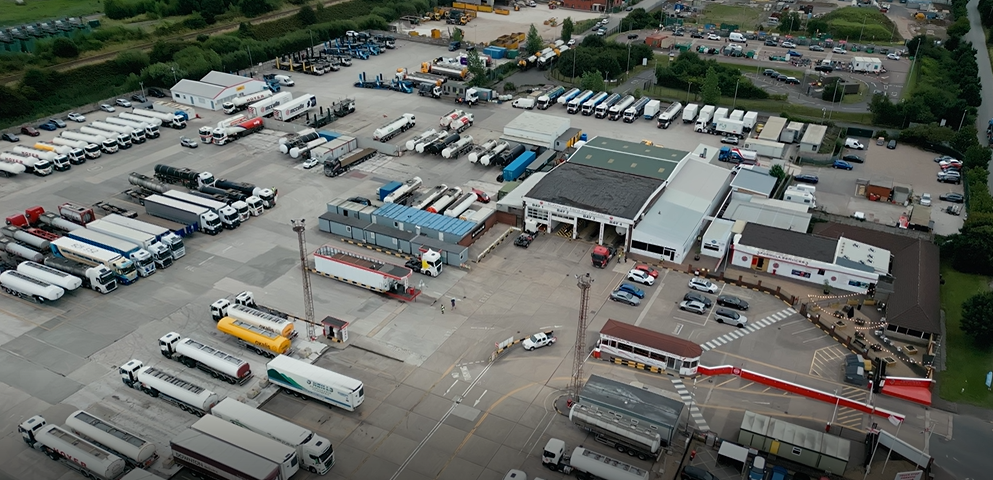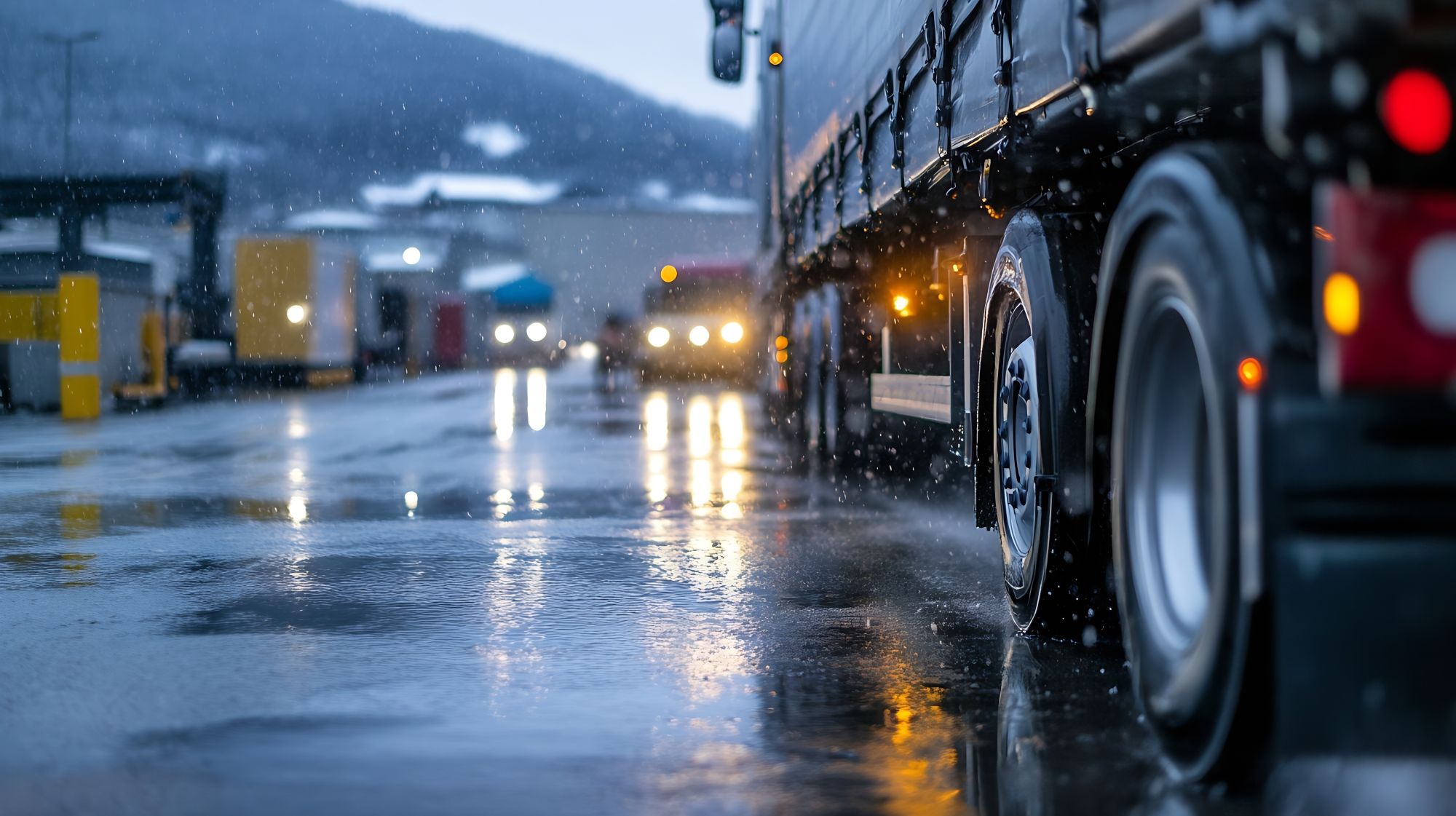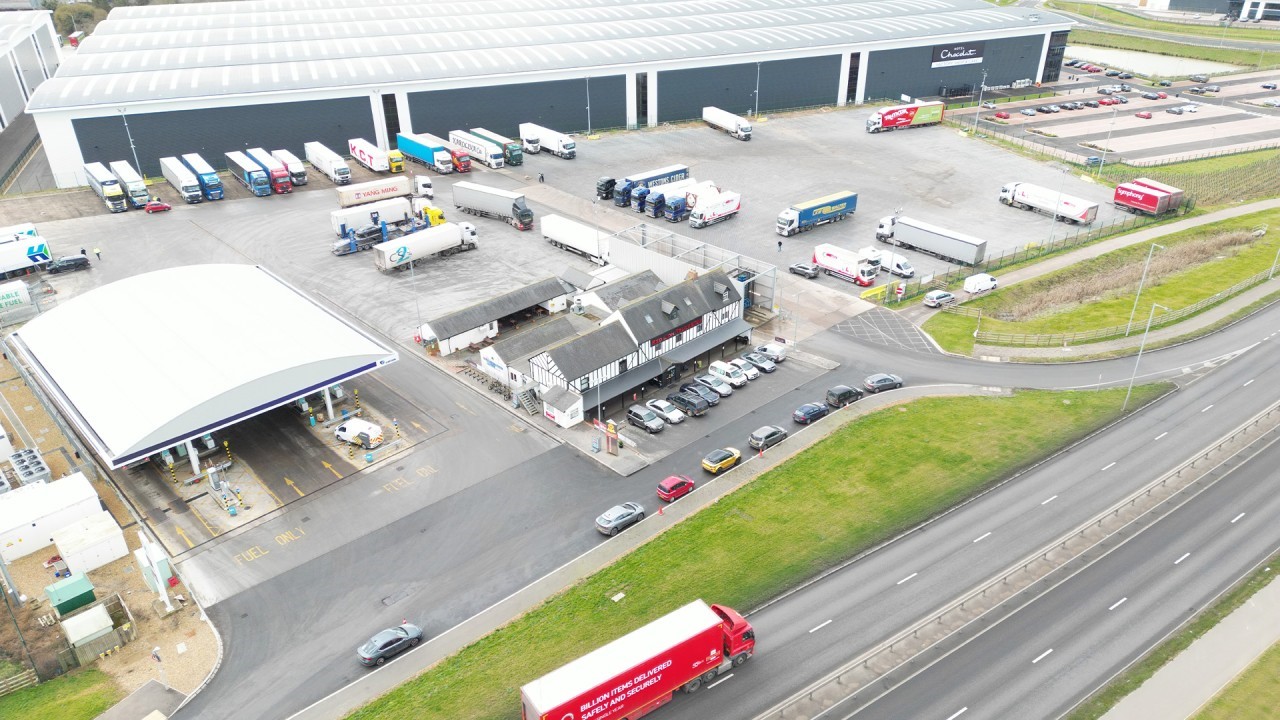
Susie Jones
Red Lion Truckstop - Un model de succes
Creat: 28.08.2024
•
Actualizat: 28.08.2024
La doar 200 de metri de M1, la intersecția 16, se află stația de camioane Red Lion. Înființat acum mai bine de 30 de ani, Red Lion a devenit destinația preferată a șoferilor. Descris ca fiind paradisul camionagiilor, atmosfera sa de comuniune, mâncarea delicioasă și gama largă de facilități fac din această stație premiată un favorit ferm. Operatorul, Ali Sadrudin, ne vorbește despre locație.
"Amplasamentul poate găzdui peste 200 de camioane pe noapte. Există o stație de alimentare cu combustibil de mare viteză, care distribuie nu numai motorină și AdBlue, ci și gaz natural comprimat (CNG). Există, de asemenea, o spălătorie pentru camioane cu 3 perii, nou construită și deservită de personal. Clădirea de facilități are un restaurant și un bar, un magazin de accesorii pentru camioane, o spălătorie, un centru de jocuri, bancomate, dușuri și toalete cu personal, precum și spații funcționale și de întâlnire."
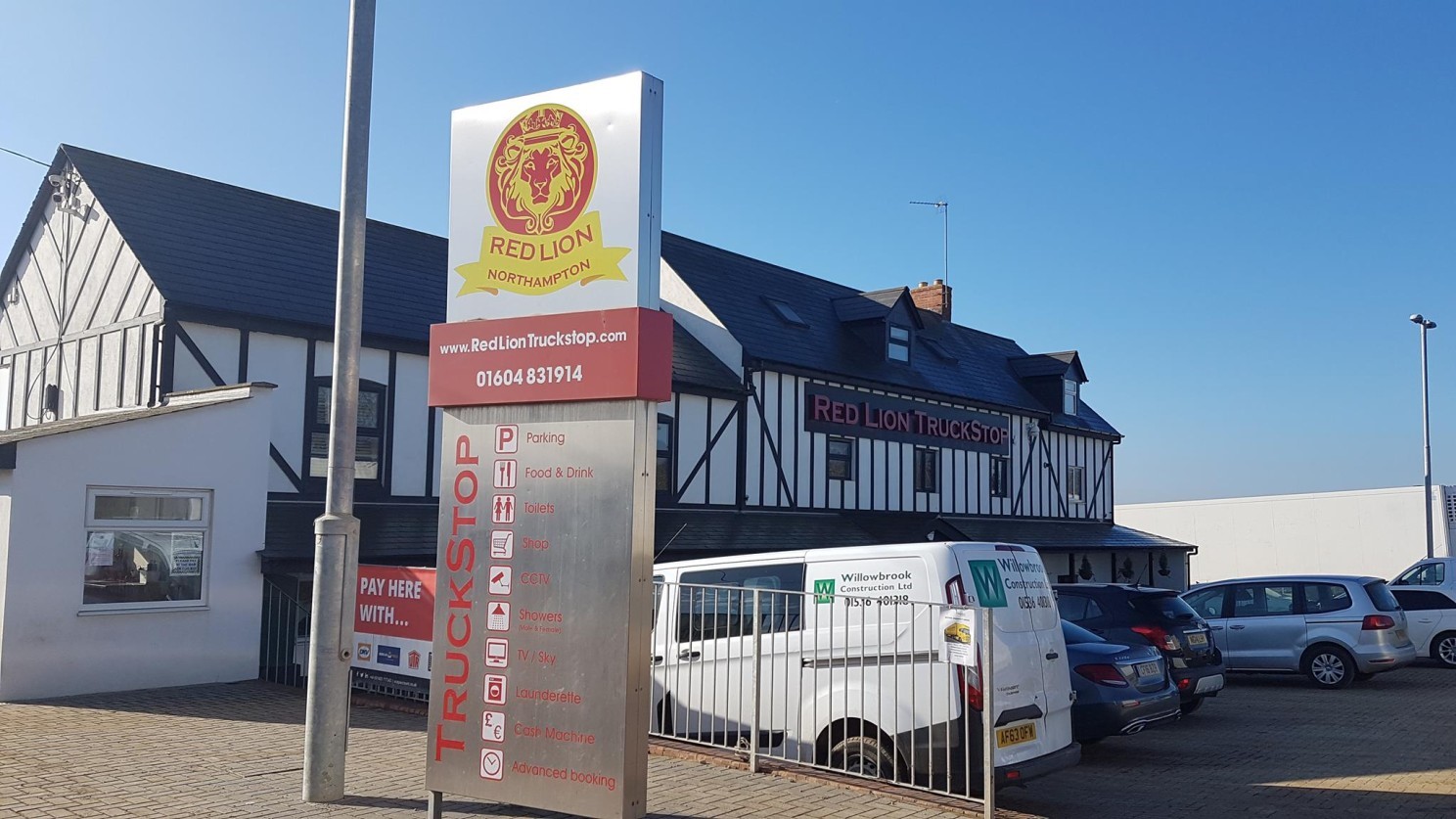
Facilități
Unii pot vedea stațiile de camioane doar ca un loc de odihnă pentru șoferi, dar acestea joacă, de asemenea, un rol crucial în îmbunătățirea bunăstării șoferilor. La SNAP, știm că furnizarea de facilități curate șoferilor este imperativă. Dar de ce altceva au nevoie drumarii?
"Cred că clienții caută elementele de bază, dar făcute bine. Mâncare bună, facilități curate și siguranță pentru vehiculele și încărcăturile lor. Dacă puteți oferi aceste lucruri, atunci veți avea clienți fericiți și fideli", spune Ali.
O privire rapidă pe pagina de Facebook a Red Lion vă spune că ei urmează cu siguranță această mantră și funcționează. Comentarii precum "o stație de camioane grozavă, cea mai bună din țară" și "probabil una dintre cele mai bune stații de camioane din Anglia" susțin cele peste 4 000 de recenzii pozitive de pe Google.
Siguranță și securitate
Cu toate acestea, mesele delicioase și facilitățile curate nu sunt singurele lucruri pe care Ali și echipa se concentrează. De asemenea, ei iau securitatea foarte în serios. În 2020, s-a estimat că, în Regatul Unit, au avut loc peste 4.000 de infracțiuni legate de vehiculele grele de marfă, de transportul de marfă și de marfă - rezultând un cost de 250 de milioane de lire sterline pentru Regatul Unit. Site-uri precum Red Lion au introdus măsuri de securitate pentru a reduce acest număr.
Ali afirmă că "SNAP ne-a ajutat să obținem certificarea TAPA PSR Level 3". În februarie 2023, The Red Lion a primit premiul Park Mark Freight. Ali ne vorbește despre măsurile de securitate care au fost luate pentru a obține acest premiu.
"Amplasamentul este un amplasament securizat prin concepție. Avem paznici 24 de ore din 24, 7 zile din 7, care patrulează pe amplasament, iar o terță parte monitorizează camerele de supraveghere. Avem un gard neîntrerupt de 3 m în jurul amplasamentului, cu camere fixe care supraveghează toate punctele acestuia, astfel încât să poată detecta orice intrare neautorizată sau deteriorare a panourilor de gard. De asemenea, amplasamentul este iluminat în întregime la nivelurile de lux necesare specificate de poliție, cu camere de detectare a mișcării amplasate strategic în jurul amplasamentului pentru a detecta orice mișcare neautorizată și pentru a ne asigura că fiecare parte a amplasamentului este supravegheată. Sistem ANPR pentru a detecta plăcuțele care intră și ies de pe amplasament, precum și o alertă de răspuns rapid cu poliția, în cazul în care este nevoie să o sunați vreodată."
Red Lion a luat, de asemenea, măsuri suplimentare pentru a se asigura că femeile șofer se simt confortabil și în siguranță în timpul vizitelor lor. Sunt disponibile facilități precum dușuri, toalete și vestiare pentru femei. Aceste măsuri nu au trecut neobservate deoarece, în ianuarie 2023, stația de camioane a fost desemnată una dintre cele mai bune stații de camioane din Regatul Unit pentru șoferițele de TIR.
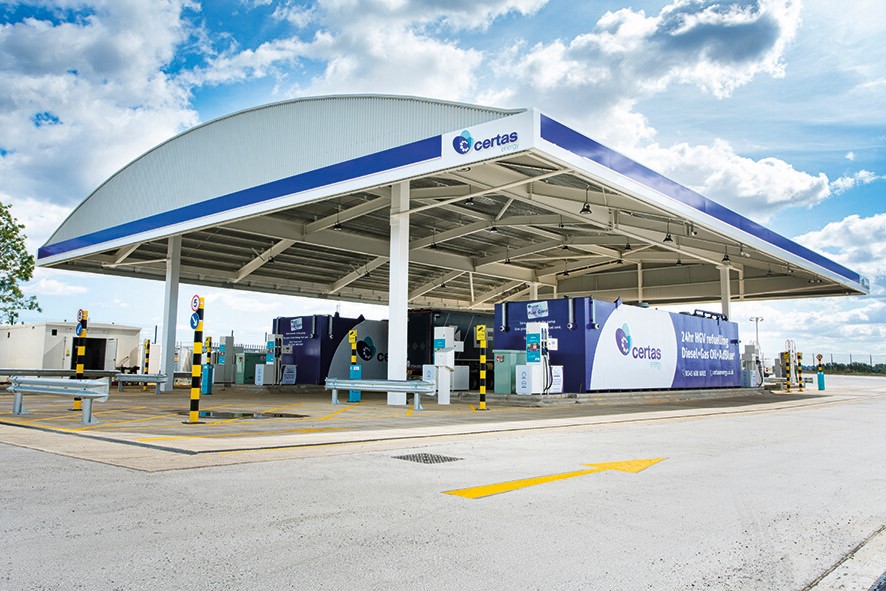
Venituri și expansiune
Unul dintre numeroasele beneficii pentru managerii de locații care utilizează SNAP este creșterea profitabilității și optimizarea. În calitate de client fondator al SNAP, Ali explică modul în care SNAP a adus venituri suplimentare afacerii de la aderarea în 2009.
"A fost un proces treptat de-a lungul anilor, cu toate acestea, având în vedere că obiceiurile de cheltuieli ale șoferilor se schimbă continuu și devin fără numerar, îmi pot imagina că un nou site care se ocupă de SNAP ar avea un randament imediat. Aproximativ 65% din veniturile totale ale site-ului provin din SNAP."
Lucrurile s-au schimbat mult în industrie din 2009. Ali explică modul în care site-ul a trebuit să se adapteze la schimbarea industriei și la creșterea cererii.
"Inițial, amplasamentul putea găzdui doar 130 de vehicule grele pe noapte, dar în 2018 a fost extins la peste 200 pentru a face față cererii crescute", afirmă Ali. Pentru șoferii și flotele care utilizează SNAP, cele 200 de spații devin ușor de rezervat.
După doar patru ani, locația a cunoscut o nouă extindere prin introducerea unei noi instalații de spălare a camioanelor. Deschisă în noiembrie 2022, spălătoria ultramodernă cu trei perii pentru camioane este potrivită pentru majoritatea LGV-urilor.
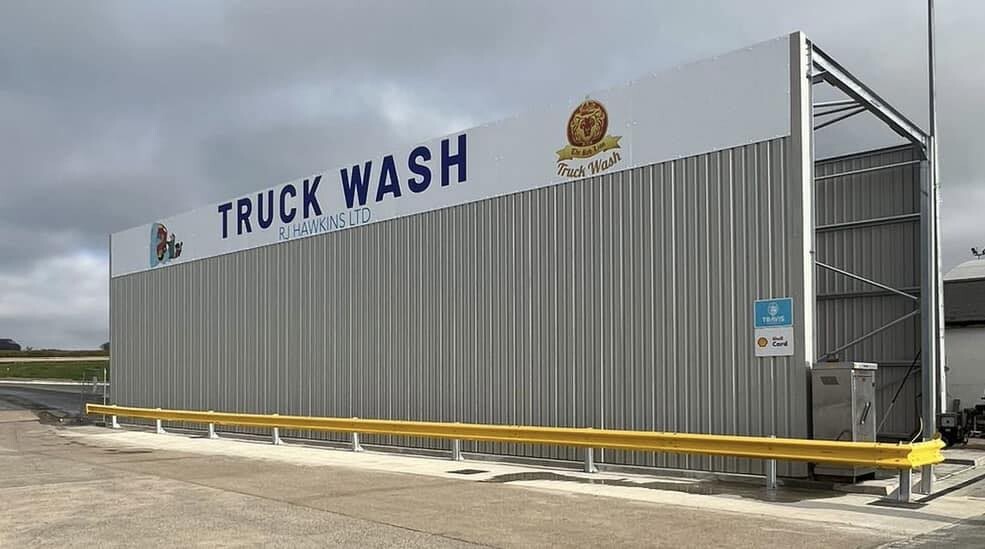
Intrarea în SNAP ca partener de servicii
Aderarea la SNAP vă pune locația în fața a 160.000 de șoferi și 7.000 de flote. Pentru stațiile de camioane, precum Red Lion, care se străduiesc constant să ofere noi inițiative și facilități pentru clienții lor, SNAP oferă oportunitatea de a face acest lucru.
"SNAP a permis site-ului să ofere o metodă de plată alternativă care nu poate decât să fie în beneficiul clienților și să îi atragă pe aceștia pe site", spune Ali.
Beneficiile SNAP
Peste 160.000 de șoferi utilizează contul SNAP. Prin urmare, standardele ridicate sunt vitale. Deși partenerii de servicii care acceptă plăți prin contul SNAP sunt afaceri independente, analizăm fiecare site și ne asigurăm că îndeplinesc standardele noastre. În plus, echipa noastră de rețea este disponibilă oricând este necesar.
"SNAP ne-a sprijinit întotdeauna, încă de la prima noastră înscriere", spune Ali.
Când a fost întrebat care este cel mai bun lucru despre SNAP pentru ei, Ali a declarat: "este nivelul de servicii, au mers mai departe și dincolo pentru a adapta sistemul de ticketing la cerințele noastre."
Și sfatul său pentru proprietarii de parcări de camioane care se gândesc să își deschidă locația pentru șoferii SNAP?
"Faceți-o! De ce nu ai vrea să aduci clienți suplimentari pe site-ul tău?".
Înscrieți-vă la SNAP
Pentru a vă îmbunătăți profitabilitatea și a vă optimiza operațiunile site-ului, accesați snapacc.com.
